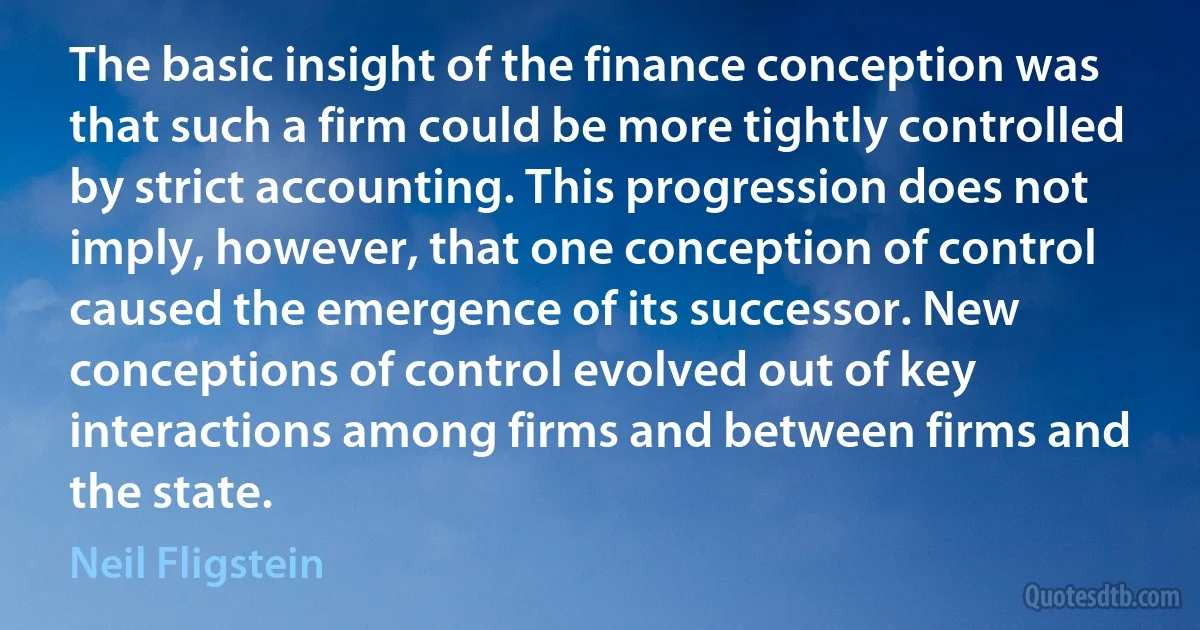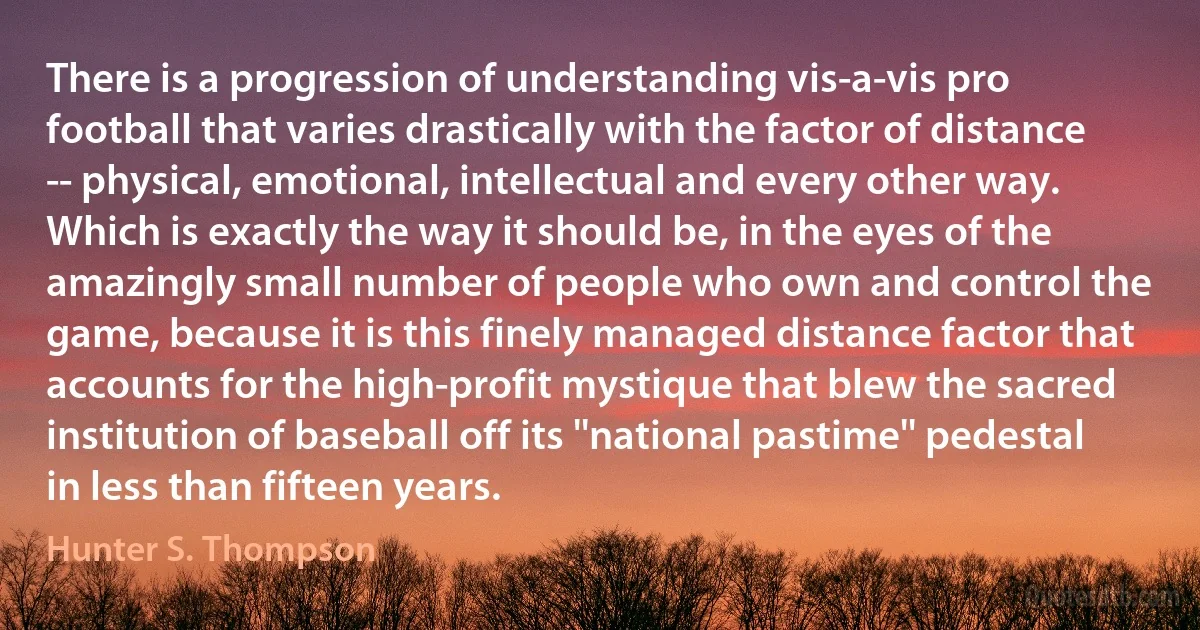Progression Quotes - page 4
Great inventions are never, and great discoveries are seldom, the work of any one mind. Every great invention is really an aggregation of minor inventions, or the final step of a progression. It is not usually a creation, but a growth, as truly so as is the growth of the trees in the forest.

Robert Henry Thurston
The only thing going on is the progression of words and sentences across page after page and so suddenly we see this immersive kind of very attentive thinking, whether you are paying attention to a story or to an argument, or whatever. And what we know about the brain is the brain adapts to these types of tools.

Nicholas G. Carr
As there must be moderation in other things, so there must be moderation in self-criticism. Perpetual contemplation of our own actions produces a morbid consciousness, quite unlike that normal consciousness accompanying right actions spontaneously done; and from a state of unstable equilibrium long maintained by effort, there is apt to be a fall towards stable equilibrium, in which the primitive nature reasserts itself. Retrogression rather than progression may hence result.

Herbert Spencer
I believe our students must first seek to understand the conditions, as far as possible without national prejudices, which have led to past tragedies and should strive to determine the great fundamentals which must govern a peaceful progression toward a constantly higher level of civilization.

George C. Marshall
The great Jewish hoax about millions of God's Chosen People whom the Germans supposedly exterminated seems to have been devised late in 1942, when it was claimed that in the autumn of that year the Germans had murdered two millions of the Holy Race in various ways. By 1943, the number had been increased to six million, and to keep up the progression, it was later increased to 40,000,000, which was seen to be so preposterous that it was reduced to 12,000,000, and at the end of the Crusade to Save the Soviet, the figure of six million was taken as the largest that could impose on the gullible goyim.

Revilo P. Oliver
Law grows, and though the principles of law remain unchanged, yet (and it is one of the advantages of the common law) their application is to be changed with the changing circumstances of the times. Some persons may call this retrogression, I call it progression of human opinion.

John Coleridge, 1st Baron Coleridge
This progression, by minute steps, in various directions, but always checked and balanced by the necessary conditions, subject to which alone existence can be preserved, may, it is believed, be followed out so as to agree with all the phenomena presented by organized beings, their extinction and succession in past ages, and all the extraordinary modifications of form, instinct, and habits which they exhibit.

Alfred Russel Wallace
The whole analogy of natural operations furnishes so complete and crushing an argument against the intervention of any but what are termed secondary causes, in the production of all the phenomena of the universe; that, in view of the intimate relations between Man and the rest of the living world; and between the forces exerted by the latter and all other forces, I can see no excuse for doubting that all are co-ordinated terms of Nature's great progression, from the formless to the formed from the inorganic to the organic from blind force to conscious intellect and will.

Thomas Henry Huxley
In the "fall of Adam" we must see, not the personal transgression of man, but simply the law of the dual evolution. Adam, or "Man," begins his career of existences by dwelling in the garden of Eden, "dressed in the celestial garment, which is a garment of heavenly light" (Sohar, ii., 229 b); but when expelled he is "clothed" by God, or the eternal law of Evolution or necessarianism, with coats of skin. But even on this earth of material degradation - in which the divine spark (Soul, a corruscation of the Spirit) was to begin its physical progression in a series of imprisonments from a stone up to a man's body - if he but exercise his WILL and call his deity to his help, man can transcend the powers of the angel. "Know ye not that we shall judge angels?" asks Paul (1 Corinthians, vi. 3). The real man is the Soul (Spirit), teaches the Sohar. "The mystery of the earthly man is after the mystery of the heavenly man... the wise can read the mysteries in the human face"

Helena Petrovna Blavatsky
The achievement of such a change of register through a sequential progression is a familiar procedure in the music of the "common practice." The significant distinction is that where Berg subdivides the registral span into equal, i. e., cyclic, intervals, his tonal predecessors subdivide it, in changing register through sequential transference, into the unequal intervals of the diatonic scale. As I pointed out in my last lecture, however, the qualitative transformation in the language of music which we have experienced in our century has a long prehistory. Beginning with Schubert, we occasionally find normal diatonic functions questioned in changes of key that progress along the intervals of the whole-tone scale, or the diminished-7th chord, or the augmented triad. An even more radical example of a cyclic progression in a tonal composition is...from Wagner.

George Perle
However sugarcoated and ambiguous, every form of authoritarianism must start with a belief in some group's greater right to power, whether that right is justified by sex, race, class, religion, or all four. However far it may expand, the progression inevitably rests on unequal power and airtight roles within the family.

Gloria Steinem
One of the first major steps in the direction of modern skepticism came through the victory of Occam over Aquinas in a controversy about language. The statement that modi essendi were replaced by modi significandi et intelligendi, or that ontological referents were abandoned in favor of pragmatic significations, describes broadly the change in philosophy which continues to our time. From Occam to Bacon, from Bacon to Hobbes, and from Hobbes to contemporary semanticists, the progression is clear: ideas become psychological figments, words become useful signs.

Richard Weaver



